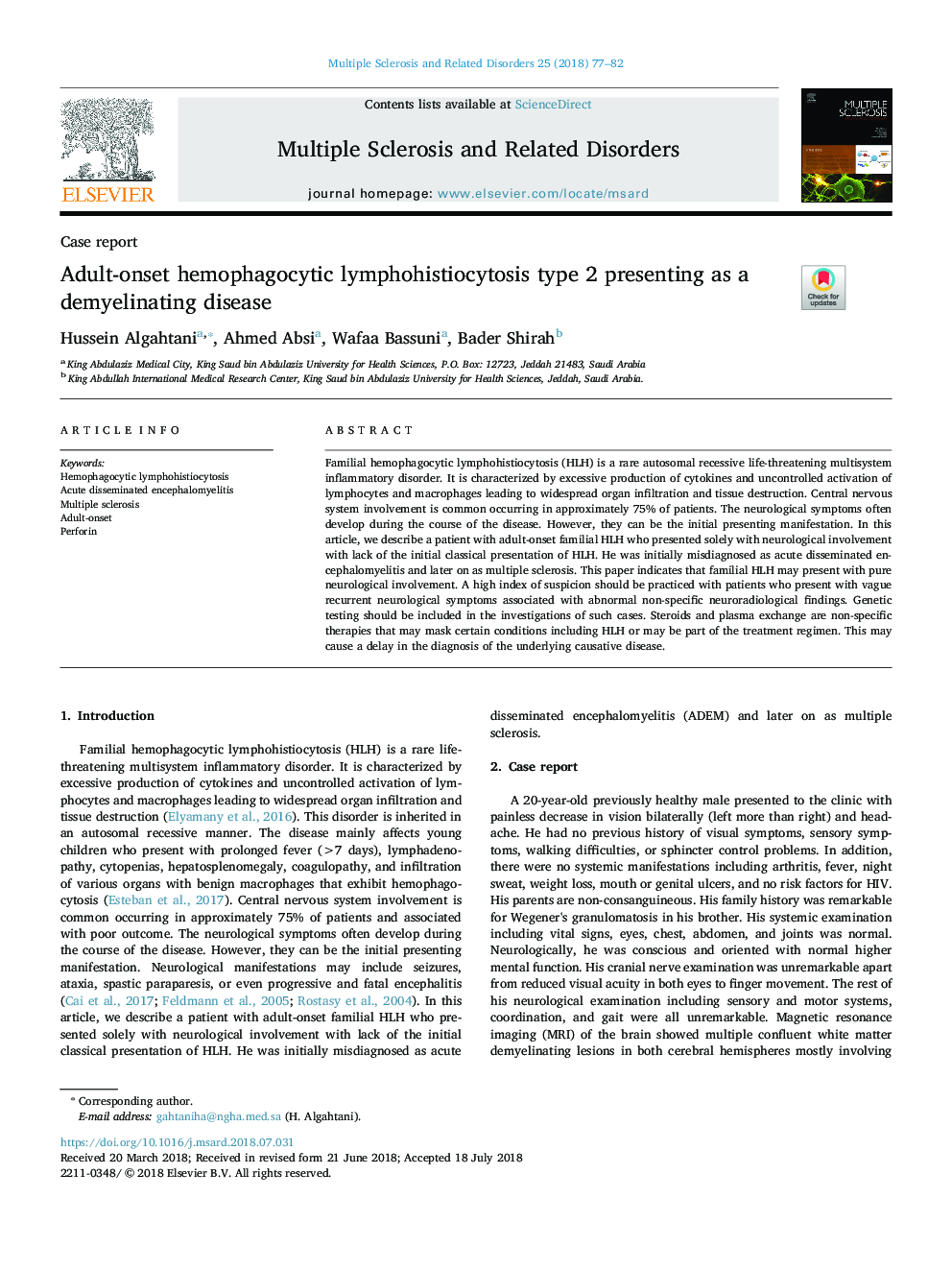| Article ID | Journal | Published Year | Pages | File Type |
|---|---|---|---|---|
| 8647264 | Multiple Sclerosis and Related Disorders | 2018 | 6 Pages |
Abstract
Familial hemophagocytic lymphohistiocytosis (HLH) is a rare autosomal recessive life-threatening multisystem inflammatory disorder. It is characterized by excessive production of cytokines and uncontrolled activation of lymphocytes and macrophages leading to widespread organ infiltration and tissue destruction. Central nervous system involvement is common occurring in approximately 75% of patients. The neurological symptoms often develop during the course of the disease. However, they can be the initial presenting manifestation. In this article, we describe a patient with adult-onset familial HLH who presented solely with neurological involvement with lack of the initial classical presentation of HLH. He was initially misdiagnosed as acute disseminated encephalomyelitis and later on as multiple sclerosis. This paper indicates that familial HLH may present with pure neurological involvement. A high index of suspicion should be practiced with patients who present with vague recurrent neurological symptoms associated with abnormal non-specific neuroradiological findings. Genetic testing should be included in the investigations of such cases. Steroids and plasma exchange are non-specific therapies that may mask certain conditions including HLH or may be part of the treatment regimen. This may cause a delay in the diagnosis of the underlying causative disease.
Keywords
Related Topics
Life Sciences
Biochemistry, Genetics and Molecular Biology
Genetics
Authors
Hussein Algahtani, Ahmed Absi, Wafaa Bassuni, Bader Shirah,
